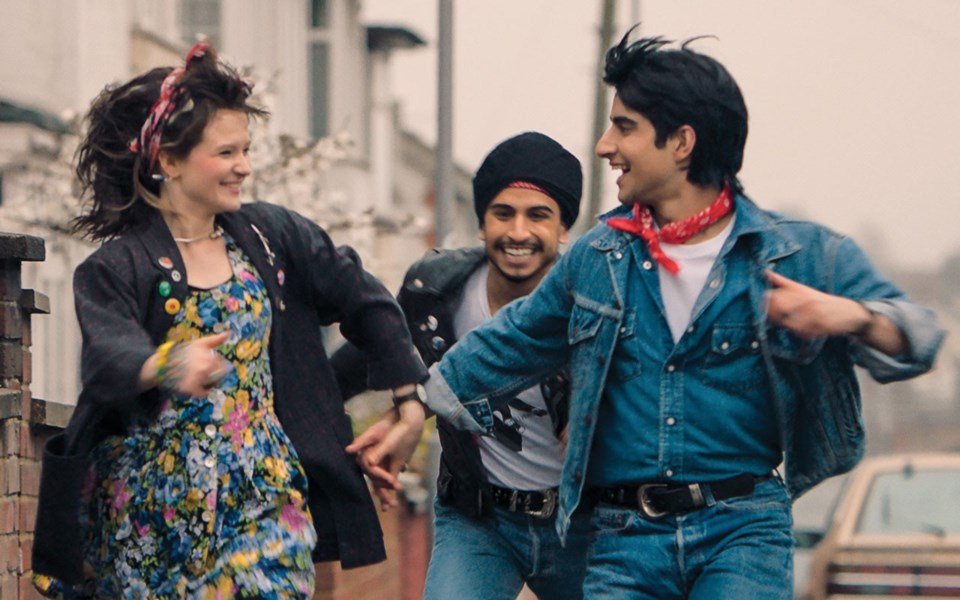After all those years of saying video games (and movies) corrupt our youth, the tables have finally turned. And of course, it happened in the beautiful city of Prince George, B.C.
Earlier this week the CBC ran a story about a woman playing the popular augmented reality game Pokémon Go, which places Pokémon characters at random public places throughout your neighbourhood and city and allows you to use a smartphone's GPS to find and catch them.
As she was out hunting Pikachus and Charizards near a Prince George church, the woman stumbled upon a group of people trying to help an overdosing man. Having previously worked in social services in Vancouver, the heroic Pokémon hunter happened to have a naloxone kit in her purse so she administered two shots and kept the man alive until paramedics arrived.
She is now recommending all Pokémon Go players equip themselves with naloxone kits (and training. Whistler Community Services offers both for free) because Pokémon hunters and drug addicts frequent a lot of the same public spaces.
"We are all out there together," she said, which is probably not the news most parents were looking for when Pokémon enjoyed a huge surge in popularity after the release of
Detective Pikachu earlier this summer.
Kids are Pokémon crazy and Pokémon Go is back. The game caused a few deaths back in 2016 as inattentive players with their heads in their phones walked off cliffs. (U.S. analytics also suggest that in the first four months after it was released the game may have contributed to 150,000 traffic accidents and 256 deaths due to Pokémon hunting while driving). But for at least one day in Prince George, a video game saved a life.
And Detective Pikachu is now available for rent on iTunes. I can't recommend it for anyone over the age of 12.
Even in a world where humans and Pokémon live in harmony, it's just not that realistic (or well written). It's cute and the effects/Pokémon integration is well done, but it won't save your life (or even change it).
Fear not though, the uplifting stories continue on the big screen this week, with Blinded by the Light opening at the air-conditioned-ly delicious Whistler Village 8. Indian-born, UK-raised director Gurinder Chadha hit the feel-good-movie-of-the-year nail firmly on the head early in her career with Bend It Like Beckham, an inspirational family drama about a young woman, forbidden from playing soccer by her parents, who chases her dreams to growth, success and freedom.
After 17 years, Chada comes back to the well and Blinded by the Light is the tale of Javed, a music-obsessed teen yearning to escape his bleak hometown and the rules of his traditional Pakistani household who finds salvation in the lyrics and music of The Boss himself—Bruce Springsteen.
The problem with flicks based on musicians is they often take the biopic approach and, while this can be effective, they also almost always end up looking like a knock-off of Walk Hard: The Dewey Cox Story. What Chada and screenwriter Sarfraz Manzoor (working on his own memoir Greetings From Bury Park) do is show the power a person's music has on the people we can all relate to, the fans.
Set in 1987 and infused with a bit of music fantasy (lyrics that manifest themselves on the landscape), some nods to music videos and Bollywood, and a genuine love for the subject matter, Blinded by the Light is likely the feel-good movie of the summer.
There will be cynics who just can't take the abject optimism of it all (and a lot of the flick does walk the line of over-sentimentality) but for those with open hearts this one is an entertaining, fun romp with valuable lessons about how "quintessentially American" songs about love, or loneliness, or what it feels like to have less than you dreamed, are actually universal.
An outcast kid in the UK, or Pakistan, or Prince George is facing a lot of the same problems as one in New Jersey.
It's a hard world everywhere kids, so keep your naloxone kits handy and your Pokémon balls at the ready. And let the music/movies/art set you free.




